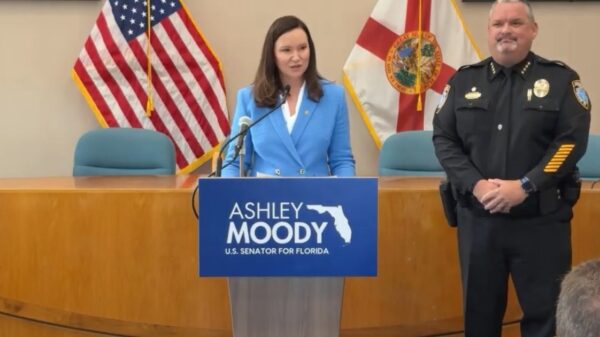On Monday, Florida Attorney General Ashley Moody warned about price gouging and scams and fraud related to the COVID-19 pandemic, especially in terms of Medicaid.
As the pandemic and resulting economic crises deepen, enrollment in Florida’s Medicaid Program is increasing. More than four million Floridians now rely on Medicaid for health coverage, creating more opportunity for criminals to exploit the government benefit to steal taxpayer money.
Moody noted her Medicaid Fraud Control Unit (MFCU) is committed to identifying, investigating and stopping fraud in the government health care program. Since Moody took office in January 2019, MFCU has secured more than $54 million in settlements and judgments as a direct result of actions brought by the office. MFCU also conducted investigations leading to the arrests of nearly 90 individuals charged with Medicaid fraud.
“With thousands more Floridians now depending on Medicaid as a result of COVID-19, there is more opportunity than ever before for fraudsters to take advantage of this program. Rest assured that we will not tolerate it. My Medicaid Fraud Control Unit will continue to aggressively pursue fraudsters and seek to recover taxpayer funds. Our analysts, attorneys, auditors and investigators are dedicated to protecting the integrity of the Medicaid program by bringing to justice anyone who would leverage this health care crisis to exploit the hardworking taxpayers of this state,” Moody said on Monday.
Moody recently issued a Consumer Alert warning Floridians about long-term care facilities seizing the stimulus payments of residents in the Medicaid program. Additionally, health care providers must remember to not seek payment from Medicaid recipients for co-payments, co-insurance, deductibles, or other cost-sharing during the declared state of emergency. On March 16, Florida Medicaid waived co-payment requirements for all services. Florida Medicaid also indicated it will pay for medically necessary services provided to Medicaid recipients diagnosed with COVID-19, regardless of whether the provider is located in-state or out-of-state.
The potential for identity theft to increase, along with the growing Medicaid enrollment, is a real possibility. To guard against identity theft, Medicaid recipients should:
- Never share personal identifying information or protected health information over the phone;
- Beware of solicitation from telemarketing organizations or telemedicine companies asking for Medicaid recipient PII or PHI;
- Avoid phone calls or text messages offering free COVID-19 tests, or other communications claiming to be acting on behalf of government entities; and
- Remember that free tests are never sent to the Medicaid recipient.
These are just a few examples of government benefit fraud schemes and trends that have emerged since the pandemic struck Florida.



















